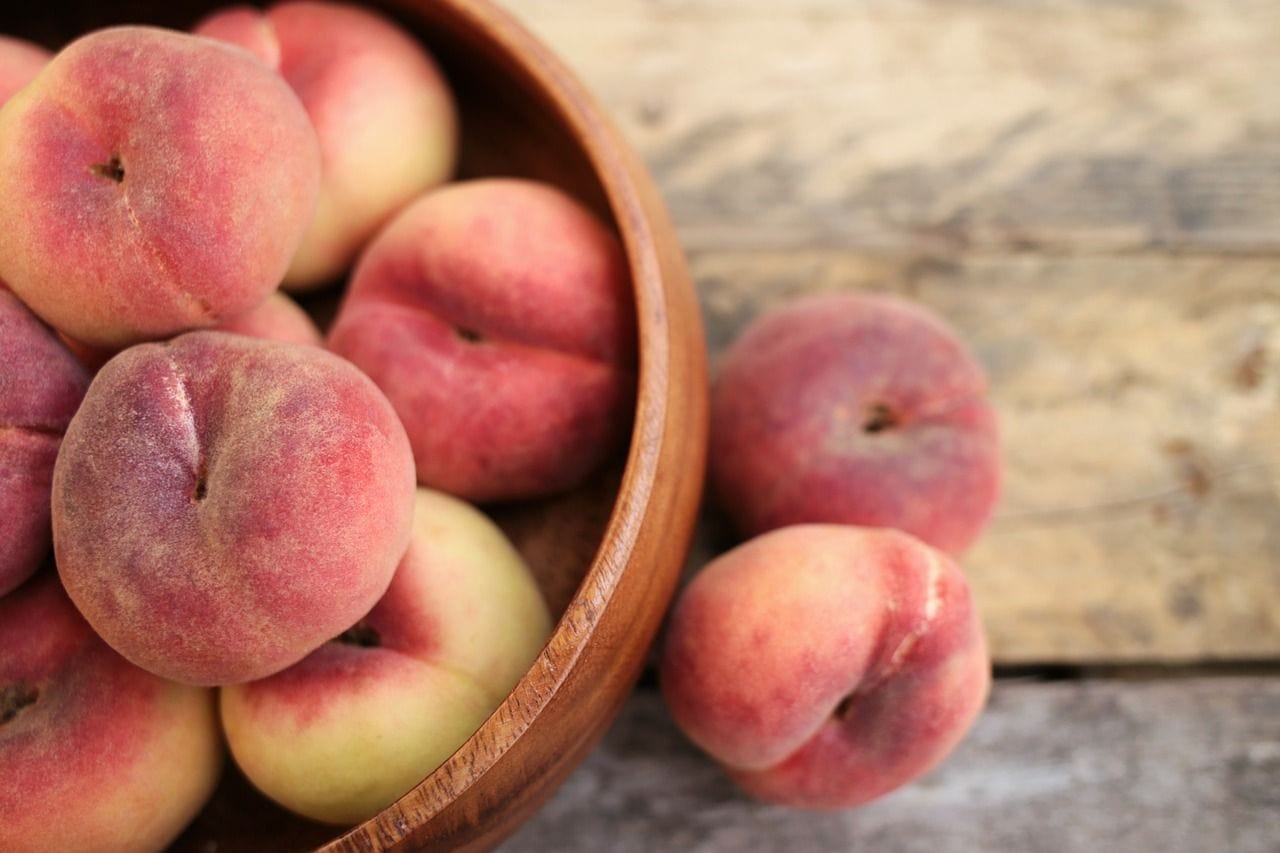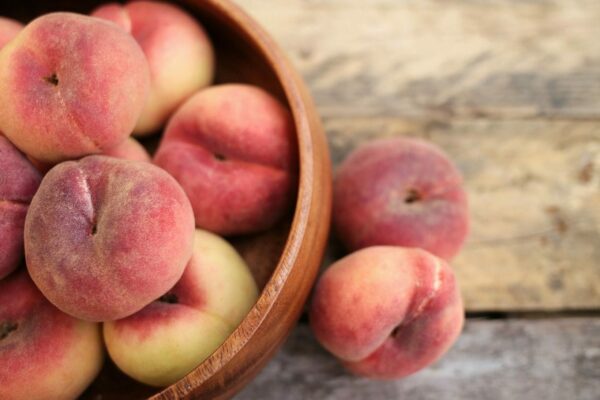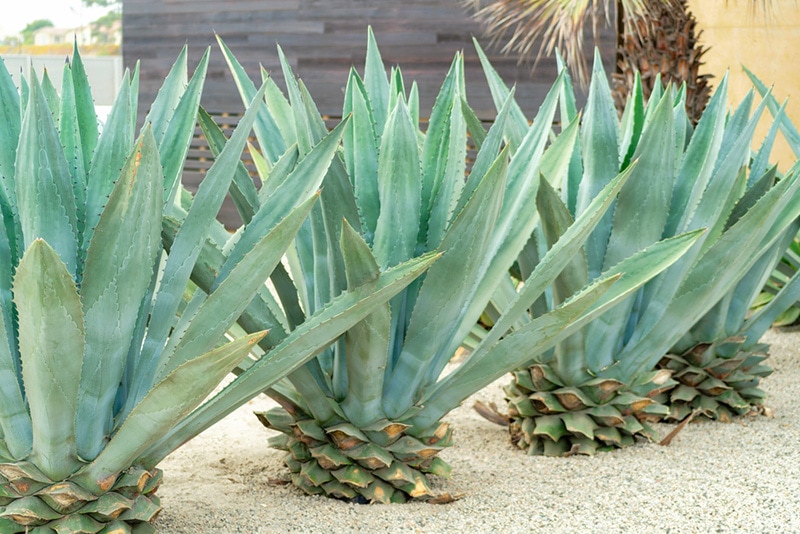Click to Skip Ahead
Peaches offer a delightful human snack, especially during the hot summer months. Some people even have peach trees growing in their yard and can grab one on the go for a fast, juicy treat. For dog owners, it’s vital to know what you can share with your dog and what to avoid. So, are peaches safe for dogs? Thankfully, dogs can eat peaches, including the fleshy outer layer of skin, and the fruit even contains nutritional value for them. However, they should not ever eat the pit, as this could be highly dangerous.
Before you start slicing up a peach for your dog to enjoy, there are a few things you should know before you give in to your dog’s begging eyes. Read on to learn how to safely feed your dog peaches, along with other valuable information.

Why Can Dogs Eat Peaches?
Peaches are a non-toxic fruit to dogs and even contain nutrients for canines. Fruit is not a necessity in a dog’s diet, but there is nothing wrong with letting your dog enjoy this sweet treat in moderation.
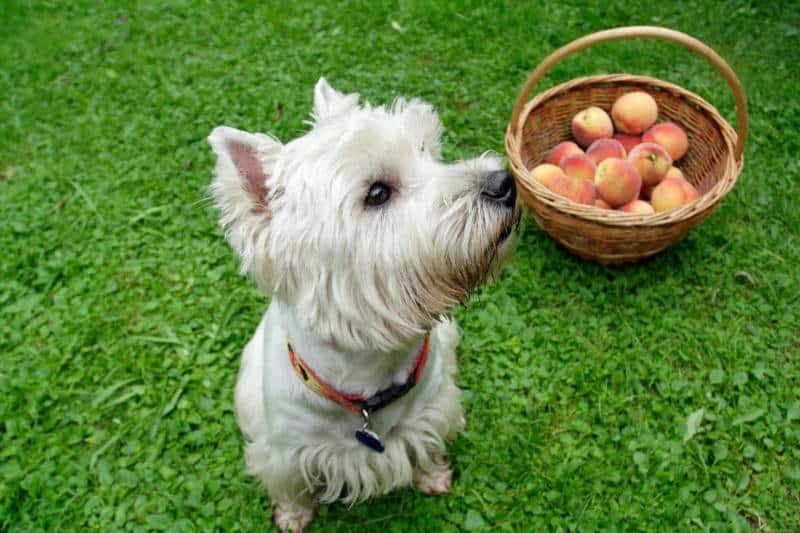
Benefits of Feeding Peaches to Dogs
We’ve mentioned that peaches have a few nutritional benefits to offer canines. To get a better understanding of exactly what those nutritional benefits are, let’s explore them more in-depth.
- Antioxidants: Can help strengthen the immune system, fight disease, and prevent cell damage
- Fiber: Improves digestion
- Vitamin A: Supports vision, and reproduction
- Vitamin C: Boosts immunity, helps in collagen formation, and improves skin and coat health
- Vitamin E: Can help with oxidative stress and inflammation
- Vitamin K: Necessary for blood clotting and coagulation
- Zinc
- Copper
- Manganese
- Phosphorus
- Magnesium
- Niacin
- Lutein
- Folate
Possible Dangers of Feeding Peaches to Dogs
Even though peaches are non-toxic and safe for dogs, this doesn’t mean you can give your dog all parts of the peach, and there are even some forms you must avoid for your dog’s safety.
Sugar Content
Peaches are high in sugar, and if fed in excessive amounts, sugar can cause health problems like obesity, gastrointestinal issues, and pancreatitis. Granted, it takes a long period of time for these health issues to occur, but you certainly do not want your dog’s health to get to this point due to eating too many sugary extras.
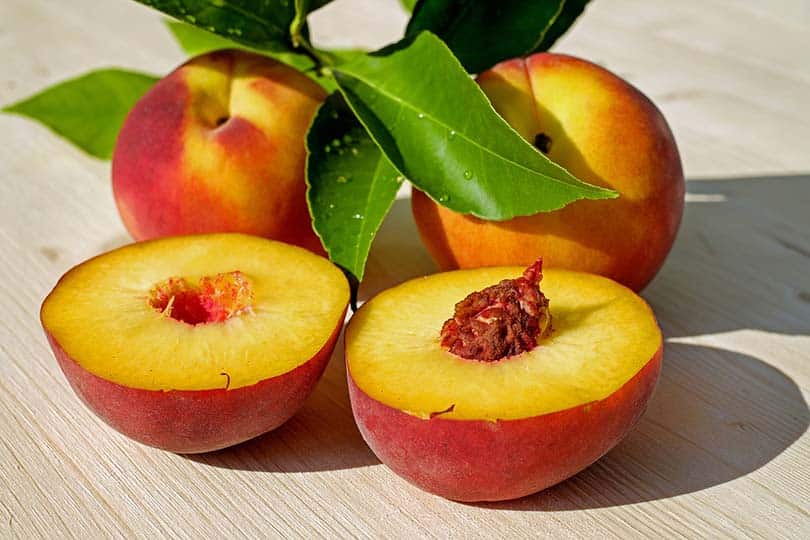
Peach Pits
While the peach itself is non-toxic, the same cannot be said about peach pits. The pit of a peach is rather large and must be removed before giving the peach to your dog. The pit is a choking hazard and can cause an intestinal blockage, making the situation a medical emergency. Another danger of the peach pit is that it contains a sugar-cyanide compound that is highly toxic to dogs. It’s vital to note that if your dog eats a peach pit, you should contact your veterinarian immediately for treatment.
Canned or Preserved Peaches
Canned or preserved peaches will have lots of added sugar and can cause stomach upset in dogs. Given the added sugar content, added preservatives, and artificial sweeteners, you should refrain from letting your dog eat peaches from a can.

Pesticide Toxicity
We know that the peach pit should be removed, but you should also remove the stem and the leaves because they contain traces of cyanide, which is toxic to dogs. Additionally, peaches are among a list of 12 fruits that contain pesticides, also known as “the dirty dozen.”
According to the Environmental Working Group (EWG), nearly 75% of non-organic fresh produce is contaminated by pesticides—that’s not promising news for anyone. However, you can still enjoy fresh fruits and veggies by washing them thoroughly before eating, especially before giving any to your dog.
It’s best to buy organic when you can; even then, you should thoroughly rinse the fruit. The standard for growing organic produce bans the use of synthetic pesticides, resulting in minimal to no trace of pesticides.
One of the more effective ways to remove pesticides is to soak fresh produce before eating. If you don’t have time to soak them, rinse them under water to remove any lingering pesticides.

How Much Can I Give My Dog?
- Extra-small breeds (2–20 pounds): 1–2 pieces
- Small breeds (21–30 pounds): 2–3 pieces
- Medium breeds (31 –50 pounds): 4–5 pieces
- Large breeds (51 –90 pounds): 5–6 pieces
- Extra-large breeds (91 + pounds): a handful of pieces
Ensure you cut up the pieces into bite-sized portions. If feeding peaches for the first time, check with your vet prior to feeding, and steer toward the minimal amount and observe for any ill effects, such as diarrhea. If your dog develops diarrhea or shows signs of tummy upset, stop giving peaches and consult your veterinarian.
Moderation is key to safely feeding a peach to your dog. You can offer a few pieces, according to the weight chart above, roughly once a week.
Conclusion
Even though peaches are a safe fruit to feed your dog, it’s important to wash them first to remove any pesticides that may possibly still be on the fruit. We also recommend consulting your veterinarian before introducing any human foods to your pooch, especially if your dog has a medical condition like diabetes. As for peaches, they are safe fruits to feed your dog as a special, occasional treat.
Featured Image Credit: u11116, Pixabay

